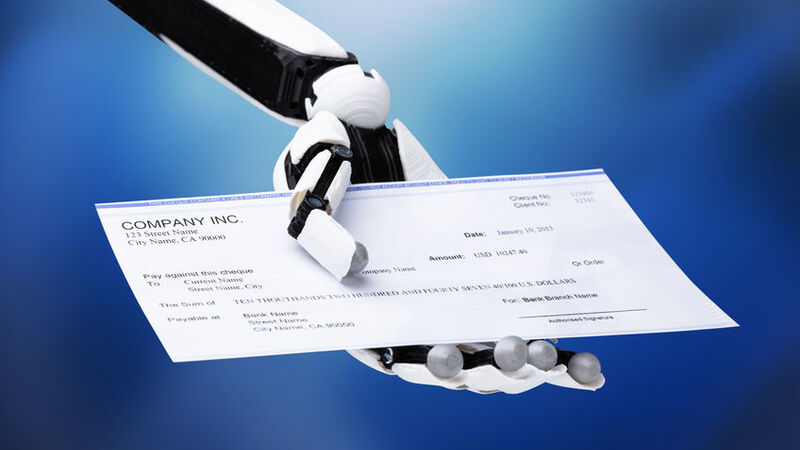RPA in Insurance
We live in a modern era, where innovations and technologies are the only constants. When introduced and adapted, innovation provides a way for businesses to stay competitive in their market segments. Robotic Process Automation is one such futuristic technology that is taking many industry segments by storm. Insurance industry has shown tremendous growth in recent years. Various insurance industry segments such as health, car, property, travel, and lifesaver insurance involve a substantial amount of supervised back-office processes. Insurance companies routinely deal with the claims processing and underwriting as well as providing policy quotes. They are overwhelmed with high volumes of repetitive business processes and monotonous clerical tasks that hinder them from providing timely customer service, meeting growth and profit expectations, and maintaining a competitive advantage in the insurance market.
Success Stories:
This is where Robotic Process Automation(RPA), targeted to accomplish repetitive tasks with accuracy, comes in handy to ease handling of many processes of the insurance industry. RPA, as the name indicates, is a technology that mimics the actions of human beings interacting with the user interface of the computer systems. RPA is poised to transform the Insurance industry wherein many employees perform repetitive, mundane tasks using structured data. It introduces more user-friendliness in terms of process automation and thereby saving more time for all stakeholders. Importantly, it also manages records, performs logic execution and executes queries in a secure manner. Robotic Process Automation in the Insurance industry can easily handle the challenges of upgrading and enhancing functionality of existing infrastructure, so-called ‘legacy systems’, and may lower the costs and the human expenditures involved to handle these integrations.
Benefits
- Claims Processing - RPA in Insurance Industry can assist in verifying claims automatically. The manual verification process not only takes more time but also labour intensive. It can lead errors while recording details of individuals, resulting in claim rejections. RPA in insurance industry can reduce the amount of time spent on repetitive processes and minimize human errors.
- Processing Time - RPA in insurance can achieve a 70% reduction in processing time & 30% faster response to eligibility requests. Minimal errors during migration of records between systems results in faster processing time which in turn increases customer satisfaction index.
- Regulatory Compliance - Insurance industries need to meet complex regulatory requirements specific to geography, products, and business lines. RPA in insurance industries can provide the ability to manage and quickly change and adapt to these regulations as per the requirements.

Claims Registration & processing
Integrates and processes claims received from multiple sources. Extracts data and verifies authenticity

Underwriting
Gathers information from various sources and assesses risks associated with the given policies

Policy Administration
Automates transactional and administrative parts of activities such as accounting, settlements, risk capture, credit control, taxation and regulatory compliance

Form Registration
Automates and assists faster completion of process

Policy Cancellation
Verifies cancellation and inception date along with policy terms before the cancellation

Free up to 20-30% of capacity with RPA in Insurance
Adoption of Robotic Process Automation in insurance industry has led to revolutionary new way of engaging customers. IntelliBuddies® is a AI & ML infused RPA platform that can increase organizational efficiency while improving customer satisfaction and minimizing operational risks.
Frequently asked questions
Robotic Process Automation (RPA) in Insurance is an emerging technology that can energize insurers to grow the responsive business while optimizing cost rapidly. RPA creates software bots that mimic human actions in transactional, administrative tasks that are repetitive, rules-based, and require no decision-making process.
RPA allows employees to focus on tasks that require manual force, such as reasoning, judgment, and emotional intelligence, thus creating more value for their organization.
You can use Robotic Process Automation in Insurance to automate various tasks including:
- Automated Claims Processing
- Data entry into critical systems
- Download policyholder’s data from multiple sources
- Read and scan data
- Data compilation from numerous systems
- Authenticate insurance period
- Flag mismatch/errors in data
- Initiate follow-up alerts
- Deliver quick approvals
- All-round view of available data to customer support staff
- To overcome the challenges of system updates and make integration more effortless, it lowers the costs and the human expenditures involved in system and software updates.
- To run the data processing more smoothly, faster, and error-proof and creates efficient data processing.
- To track the processes and ensure that compliance with the regulations is in place. External audits thus become much less of an issue for insurance companies that make effective use of automation.
- To handle the tedious, repetitive tasks like regulatory reporting, claims processing, document verification, or manual data tabulation, the human-specific capacity for creative, innovative work may be better used for customer experience, personalized, and improved by human interaction.
- Claims Registration and Processing- RPA in Insurance is used to integrate all the different claim processing information from multiple sources. It can automate the manually controlled processes like data extraction, complex error tracking, claim verification, claim relevant data sources integration, speeding up the process, and creating a better customer experience.
- Form Enrolments- RPA in Insurance can automate the form registration completion in just 40% of the actual time taken, with half the workforce required.
- Underwriting- Robotic Process Automation automates data collection from various external and internal sites, thus reducing the time taken for underwriting.
- Policy Admin and Servicing- RPA in Insurance automates the transactional and administrative parts of accounting, settlements, risk capture, credit control, tax, and regulatory compliance.
- Policy Cancellation - RPA in Insurance automates the transactional tasks such as tallying cancellation date, inception date, policy terms, and so policy cancellation can be carried out just one-third of the time.